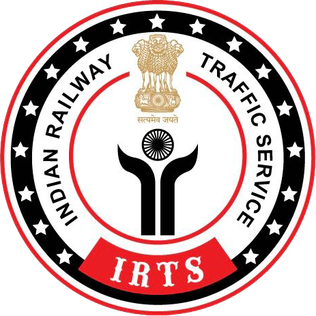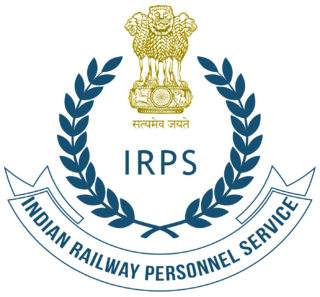Related Research Articles
The All India Services (AIS) comprises three Civil Services of India common to the centre and state governments, which includes the Indian Administrative Service (IAS), the Indian Police Service (IPS), and the Indian Forest Service (IFS). Civil servants recruited through All India Services by the central government are assigned to different state government cadres. Some civil servants may, later in their career, also serve the centre on deputation. Officers of these three services comply to the All India Services Rules relating to pay, conduct, leave, various allowances etc.
Special Class Railway Apprentice (SCRA) was a programme by which candidates are selected by the Union Public Service Commission (UPSC) India, to train in the undergraduate program in mechanical engineering at the Indian Railways Institute of Mechanical and Electrical Engineering, Jamalpur. This programme started in 1927 and is one of the oldest in India.

The Jamalpur Gymkhana, often referred to as Gymkhana by its members, is a hostel for young apprentice officers of the Indian Railways in Jamalpur, Bihar, India. It is also a club like any other Gymkhana. The difference is that membership to this club is restricted only to those who spend their formative years in its corridors. It is difficult to talk about Gymkhana without quickly moving on to the anecdotal history of its members - current and past, referred to as Gymmies by its inmates.
The Indian Railway Service of Mechanical Engineering, abbreviated as IRSME, is one of the group 'A' central engineering services of the Indian railways. The officers of this service are responsible for managing the Mechanical Engineering Division of the Indian Railways. Till 2019, IRSME officers were drawn from the Combined Engineering Service Examination (ESE) and Special Class Railway Apprentice (SCRA) examination conducted by Union Public Service Commission. All appointments to the Group 'A' services are made by the president of India.
The Engineering Services Examination (ESE) is an annual combined standardized exam conducted by the Union Public Service Commission (UPSC) to recruit officers to various engineering services under the Government of India. It is held in four categories: Civil, Mechanical, Electrical, and Electronics & Telecommunication. The exam has three stages comprising objective, subjective and personality tests. The various services are often informally known as Indian Engineering Services (IES).
Indian Railways is a statutory body under the ownership of the Ministry of Railways of the Government of India that operates India's national railway system. It is headed by a Railway Board whose chairman reports to the Ministry of Railways. It is organized into separate functional groups or verticals while divided into 17 operational zones geographically. Each zone, headed by a General Manager, is semi-autonomous thus creating a matrix organization where the functional branches are under dual control.
The Indian Railway Service of Electrical Engineers (IRSEE) is a prestigious group A central engineering services of the Indian railways. The officers of this service are responsible for managing the Electrical Engineering organisation of the Indian Railways.
The Indian Railways Service of Engineers (IRSE) is one of the oldest group 'A' central engineering services recruited through the engineering services examination of the Union Public Service Commission. The officers of this service are responsible for administering the Civil Engineering organisation of the Indian Railways
The Indian Railway Stores Service (IRSS) is one of the Group A central engineering services of the Government of India. The officers of this service are procurement and logistics specialists, contract managers on the Indian Railways, providers of logistics for the transportation of material from and within various railways as well as the planners and maintainers of the intelligent warehousing with automated storage and retrieval systems on the Indian Railways. The IRSS officers undergo training at National Academy of Indian Railways (NAIR) for a period of 18 months which includes two months certification course at IIM Khozikhode and a foreign training.

The Indian Railway Traffic Service, abbreviated as IRTS is a Prestigious Group 'A' Central Civil Service Cadre of the Government of India. IRTS in its present form was reconstituted in 1967. The IRTS Cadre functions under the Administrative Control of the Ministry of Railways, Government of India. The civil servants under this service are responsible for Operation and Business Development of Indian Railways in the country. On one hand, IRTS officers co-ordinate among various technical departments of the Indian Railways, while on the other hand, they form the public interface of the Indian Railways. Colloquially called Traffic Officers, they are the primary facilitators of Railway services right from Planning of freight movement, Passenger transport, Passenger amenities to Station Management and Infrastructure Planning.

The Indian Railway Personnel Service (IRPS) is a Prestigious Group 'A' Central Civil Service cadre of the Government of India. The central civil servants of this service are responsible for managing the Human Resources of the Indian Railways and welfare of railway employees and their families. Railways has a work force of about 1.4 million employees. It is the only civil service of its kind in India and it creates a cadre of central civil servants specialized in human resource management in government of India. The total sanctioned strength of the service is '478' after cadre restructuring orders on 09.03.2019.
The Indian Railway Accounts Service is one of the Group A Central Civil Service of the Government of India. The civil servants under this Service are responsible for the Accounts and Finance Management of the Indian Railways. About 25–30 IRAS officers are recruited every year through Civil Services Examination conducted by Union Public Service Commission. Currently, the IRAS Cadre has a strength of about 800 officers.
The Indian Post & Telecommunication Accounts and Finance Service / IP&TAFS is a Group "A" Central Civil Services of the Union of India. The Service was started in the year 1972 for prudent and professional management of the finances of the Department of Posts and Department of Telecommunications which were the sole provider of the communications needs of the country at that time. Gradually, over time the service has crystallized into a professional cadre of over 376 officers. In 2017, 25 officers were recruited through prestigious Civil Services Examination conducted by Union Public Service Commission.
The Indian Telecommunications Service, widely known as ITS, and earlier known as 'Telegraph Engineering Service Class I' is one of the Central Civil Services under Group 'A' of the executive branch of the Government of India. The appointment to this service is done through Combined Engineering Services Exam held every year by Union Public Service Commission (UPSC) of India. The service was created to meet the techno managerial needs of the government in areas related to telecommunications. The Department of Telecommunications (DOT) had been managed for years by the officers of this permanent cadre, called the Indian Telecommunications Service (ITS).The officers of ITS work under restrictions and rules of Central Civil Services (Conduct) rules.
The State Police Services (SPS) is an umbrella term for police services under different state governments in India. In India, police is a state subject and each state has its own police service. For example, Maharashtra Police Service (MPS) for Maharashtra Police or Provincial Police Service (PPS) for Uttar Pradesh Police. It's counterpart in the central government is the Indian Police Service (IPS), which is a higher civil service. Recruitments are done through the respective state's Public Service Commission (PSC).
Gazetted officers are executive/managerial level ranked government officers in India. Authority for a Gazetted officer to issue an official stamp comes from the President of India or the Governors of States. To that effect, they are de jure representatives and delegates of the Republic of India and the President of India. If a person's appointment is published in the Gazette of India or any state government gazette with their name, they are called Gazetted.
Indian Defence Accounts Service (IDAS) is a Central Group 'A' Civil Service of the Republic of India established to provide Financial Advice, Payment, Accounts and Audit services to the Defence Services i.e. Indian Armed Forces and other allied organisations viz. Defence Public Sector Undertakings, Military Engineer Services, Border Roads Organisation, Defence Research and Development Organisation etc.
The Central Civil Services (CCS) encompass the various Civil Services of India that are exclusively under the jurisdiction of the Government of India. This is in contrast to the All India Services, which are common to both the central and state governments, or the state civil services, which fall under the purview of individual states.
The Railway Board Secretariat Service (RBSS) is a central civil service with induction at Group 'B' stage in the Secretariat of the Ministry of Railways of the Union Government of India.
Provincial Police Service, often abbreviated to as PPS, is the state civil service for policing of Uttar Pradesh Police comprising Group A and Group B posts. It is also the feeder service for Indian Police Service in the state.
References
Centralised Training Institutes of the Indian Railways